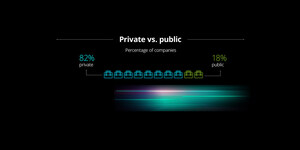NEW YORK, June 9, 2015 /PRNewswire/ -- Global luxury brands should take advantage of evolving technological and consumer demands to help boost profits and remain competitive, according to the 2nd annual Global Powers of Luxury Goods report issued by Deloitte Touche Tohmatsu Limited (DTTL).
The report provides an outlook on the global economy; an analysis of merger and acquisition activity in the luxury sector; and a forward look on the changing nature of the luxury consumer – notably through the impact of technology. The world's 100 largest luxury goods companies generated sales of $214.2 billion through the end of the last fiscal year (fiscal years ended through June 2014) despite currency headwinds and intense technological disruption.
Patrizia Arienti, DTTL EMEA Fashion and Luxury leader, comments: "Several key aspects of the luxury sector will be unrecognizable in the next few years. The traveling luxury consumer will change the concept of national boundaries; millennial consumers will represent a significant percentage of sales volume in luxury; and the competitive forces driven by technology will continue to disrupt at a faster pace. As such, global luxury brands must overcome significant challenges in order to maximize engagement with their digitally-savvy, time-sensitive and socially aware consumers or risk being left behind."
Key findings from the report include:
- Adoption of technology as a competitive advantage - Luxury brands must keep up with evolving technology and refine their products, but without detracting from their unique core product offering and expertise. Industry executives identified reputational risk from social media as one of the highest risks in online marketing and distribution, according to Deloitte's 2014 Swiss Watch report.1 "The luxury sector needs to continue to forge a strong relationship with an ever-increasing array of technologies, as it continues to influence the value chain. The legitimate concern about diluting a brand's exclusivity in the broadly accessible online world requires brands to move carefully to ensure sustainable, long-term value creation," said Arienti.
- Engaging the millennial shopper - Fifty-eight percent of millennials currently go online to search for information on luxury items and 31 percent use social media for gathering information around discounts and promotions, compared with 10 percent for older luxury consumers.2 In order to effectively target millennials, (who are already emerging as leaders in technology and other industries and are expected to comprise 75 percent of the global workforce by 20253) luxury brands can benefit by fully understanding their buying habits and influencers.
- The global make up of luxury demand is changing – "The channels on which luxury consumers shop is constantly evolving, making it critical for companies to understand the changing desires, buying behaviors and channels of luxury consumers," said Arienti. Results from Deloitte's Luxury Consumption among European High Earners 2014 survey of over 1,000 high-income earners across Europe illustrate that while traditional marketing channels such as magazines and store browsing continue to be relevant for consumers gathering information on new luxury brands, 45 percent of participants indicated that they search online for information.
Ira Kalish, DTTL's Chief Global Economist, comments: "The global economy in 2015 has provided ups and downs for luxury purveyors. On the positive, some key markets are continuing to show signs of greater strength. The US economy has accelerated and will likely grow faster in 2015 than at any time since 2005. In Europe and Japan, more aggressive monetary policies are boosting growth as well as asset prices. Comparatively, China's economy continues to decelerate, even as the government takes steps to boost credit activity. Looking ahead to the second half of 2015, we expect to see increased growth in India, slow growth in China, and recession in Russia and Brazil which may have an impact on the luxury sector more broadly."
About Deloitte
Deloitte refers to one or more of Deloitte Touche Tohmatsu Limited, a UK private company limited by guarantee ("DTTL"), its network of member firms, and their related entities. DTTL and each of its member firms are legally separate and independent entities. DTTL (also referred to as "Deloitte Global") does not provide services to clients. Please see www.deloitte.com/about for a more detailed description of DTTL and its member firms.
Deloitte provides audit, consulting, financial advisory, risk management, tax and related services to public and private clients spanning multiple industries. With a globally connected network of member firms in more than 150 countries and territories, Deloitte brings world-class capabilities and high-quality service to clients, delivering the insights they need to address their most complex business challenges. Deloitte's more than 200,000 professionals are committed to becoming the standard of excellence.
1 Deloitte, The Deloitte Swiss Watch Industry Study 2014 Changing Times.
2 Deloitte's Luxury Consumption among European High Earners 2014 survey
3 Deloitte Touche Tohmatsu Limited's (DTTL) 2014 third annual Millennial Survey
Logo - http://photos.prnewswire.com/prnh/20120803/MM52028LOGO-a
SOURCE Deloitte
Related Links
WANT YOUR COMPANY'S NEWS FEATURED ON PRNEWSWIRE.COM?
Newsrooms &
Influencers
Digital Media
Outlets
Journalists
Opted In





Share this article